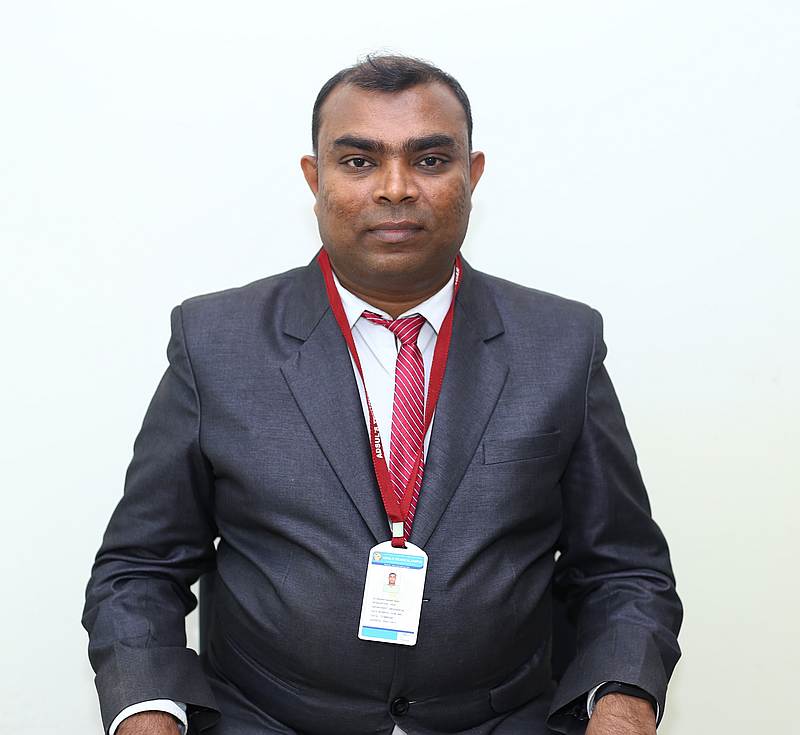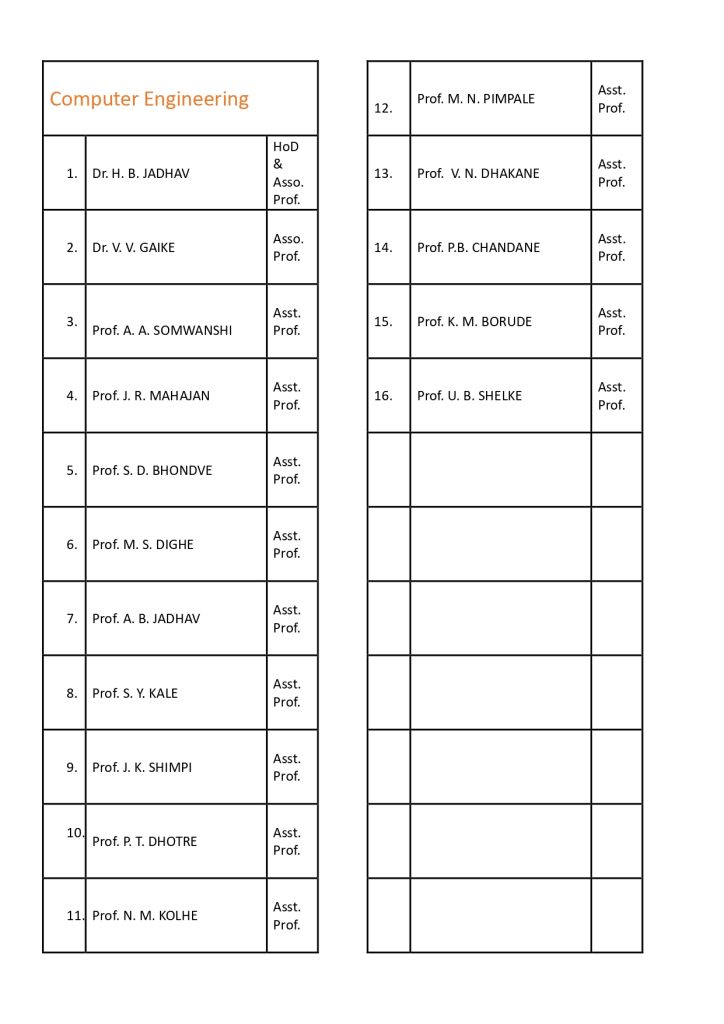PO-1 Engineering knowledge: Apply the knowledge of mathematics, science, engineering fundamentals, and an engineering specialization to the solution of complex engineering Programs.
PO-2 Problem analysis: Identify, formulate, review research literature, and analyze complex engineering problems reaching substantiated conclusions using first principles of mathematics, natural sciences, and engineering sciences.
PO-3 Design/development of solutions: Design solutions for complex engineering problems and design system components or processes that meet the specified needs with appropriate consideration for the public health and safety, and the cultural, societal, and environmental considerations.
PO-4 Conduct investigations of complex problems: Use research-based knowledge and research methods including design of experiments, analysis and
interpretation of data, and synthesis of the information to provide valid conclusions.
PO-5 Modern tool usage: Create, select, and apply appropriate techniques, resources, and modern engineering and IT tools including prediction and modelling to complex engineering activities with an understanding of the limitations.
PO-6 The engineer and society: Apply reasoning informed by the contextual knowledge to assess societal, health, safety, legal and cultural issues and the consequent responsibilities relevant to the professional engineering practice.
PO-7 Environment and sustainability: Understand the impact of the professional engineering solutions in societal and environmental contexts, and demonstrate the knowledge of, and need for sustainable development.
PO-8 Ethics: Apply ethical principles and commit to professional ethics and responsibilities and norms of the engineering practice.
PO-9 Individual and team work: Function effectively as an individual, and as a member or leader in diverse teams, and in multidisciplinary settings.
PO-10 Communication: Communicate effectively on complex engineering activities with the engineering community and with society
at large, such as, being able to comprehend and write effective reports and design documentation, make effective presentations, and give and receive clear instructions.
PO-11 Project management and finance: Demonstrate knowledge and understanding of the engineering and management principles and apply these to one’s own work, as a member and leader in a team, to manage projects and in multidisciplinary environments.
PO-12 Life-long learning: Recognize the need for, and have the preparation and ability to engage in independent and life-long learning in the broadest context of technological change.


Sakeshwar Gramin Vikas Seva Sanstha’s
ADSUL’S TECHNICAL CAMPUS
Approved by AICTE New Delhi| Recognized By Government of Maharashtra DTE and Affiliated to SPPU, Pune
Accredited by NAAC with B++, ISO 9001:2015 Certified


Home » Mechanical Engineering
OUR VISION
“To be a premier department in Mechanical engineering to serve the need of industry and society. ”
OUR MISSION
- M1: To provide state-of-the-art facilities to impart quality education.
- M2: To undertake various value-added and add-on courses to make students technically sound and thorough professionals.
- M3: To collaborate with the industries and strive to instil the research and problem-solving attitude amongst students and faculty.
- M4: To inculcate high moral, ethical values, and spirit of national pride amongst students and faculty.

MR.G.B.SHIRSATH
Mechanical Engineering – a core engineering discipline that plays a central role in creation of the materialistic world and we have grown our expertise and competence in the core Mechanical Engineering curriculum and research. The department of Mechanical Engineering was established in 2011, having illustrious history and offers Bachelor of Engineering degree programme. The department is vibrant with several activities round the year. We have research focus that benefits industry, society and the environment. The department is fortified with highly motivated faculty members, who besides their regular activities of teaching, do research and interact with industries. We have a strong undergraduate program in mechanical engineering. The primary focus of our department curriculum is to impart technical know-how to students, promote their problem-solving skills and innovation of new technologies. Department offers large number of add on courses for providing wide spectrum of options to the students to pursue their interest. The course contents are periodically updated for introducing new scientific and technological developments. Undergraduate students are encouraged to undertake various research projects. Our department maintains active research groups for carrying out collaborative and interdisciplinary research. Department has a distinguished record in both teaching and research. Faculty members have excellent academic credentials and are highly regarded. Regular activities are arranged and encouraged in the department for indigenous product development, skills enhancement and interdisciplinary interactions. The Department is well equipped with state-of-the-art laboratories and infrastructural facilities in thrust areas. It has advanced laboratories of Manufacturing, Thermal Engineering, Fluids Engineering, Refrigeration and Air Conditioning, latest tools in the work shop, welding shop and carpentry. It also has seven advanced computing centers with advanced softwares I feel obliged to welcome you and to further respond to any of your query or clarity.
Program Specific Outcomes (PSOs)
PSO-01: Understand, plan, analyse, design and execution of buildings and infrastructures such as residential, public, industrial and irrigation structures, transportation facilities, powerhouses respectively.
PSO-02: Make use of management tools, optimization and leadership techniques to complete the
civil engineering projects within stipulated time and funds.
PSO-03: Contribute to the society for sustainable development through environmental awareness
and upholding professional ethics.
Program Outcome(PO)

Page Under Construction
Page Under Construction
| Sr.No | Class | Duration | Academic Year |
|---|---|---|---|
| 1 | TE | 21 Jan-19 Feb 2023 | 2022-23 |
| 2 | TE | 25 Feb-31 March 2022 | 2021-22 |
| Sr.No | Year | No.of Students |
|---|---|---|
| 1 | 2022-23 | 22 |
| 2 | 2021-22 | 57 |
| 3 | 2020-21 | 40 |
| 4 | 2019-20 | 26 |
| 5 | 2018-19 | 05 |
| 6 | 2017-18 | 09 |